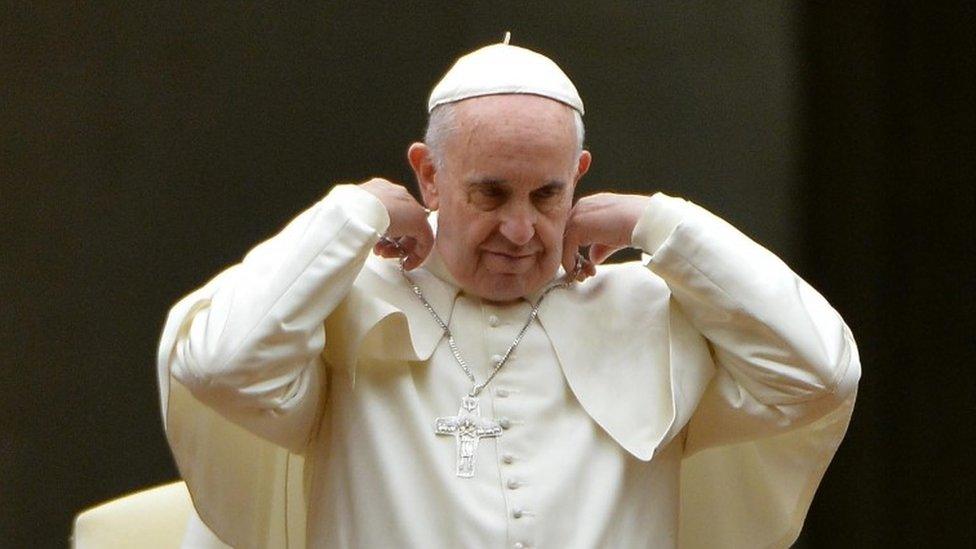Catholic bishops end divisive synod on family
- Published
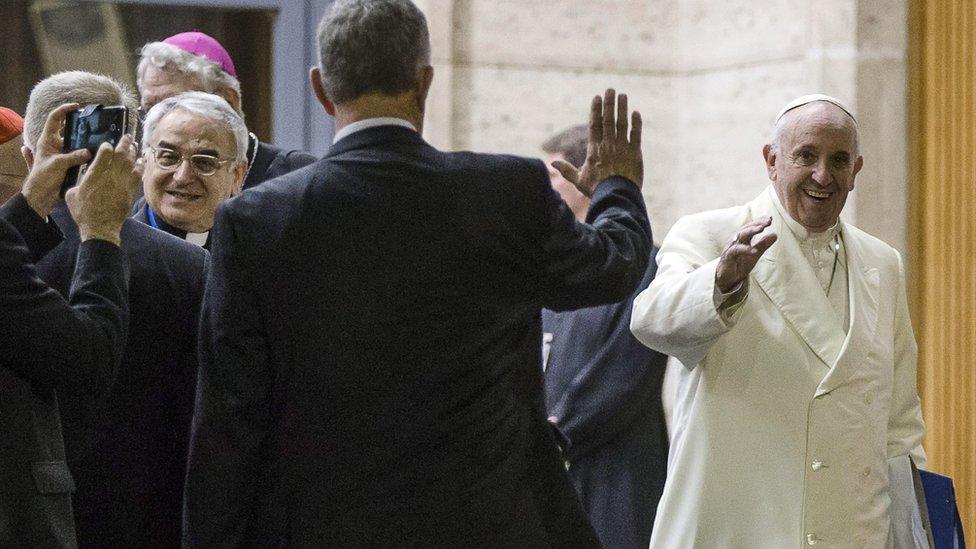
Pope Francis had pointed words for conservative bishops after the meeting
Roman Catholic bishops have finished an often fractious synod on the family by reaching a compromise on divisive issues.
Doctrine towards divorcees has been softened but there is no change in the church's stance on homosexuality.
In comments afterwards, Pope Francis appeared to criticise conservative bishops.
The church, he said, should confront difficult issues "fearlessly, without burying our heads in the sand".
At the synod, the name given to the meeting of Roman Catholic leaders, bishops voted on 94 articles dealing with how the church treats the family.
The most contentious, dealing with whether divorced and remarried believers should be allowed to play a full role in the church, only just passed.
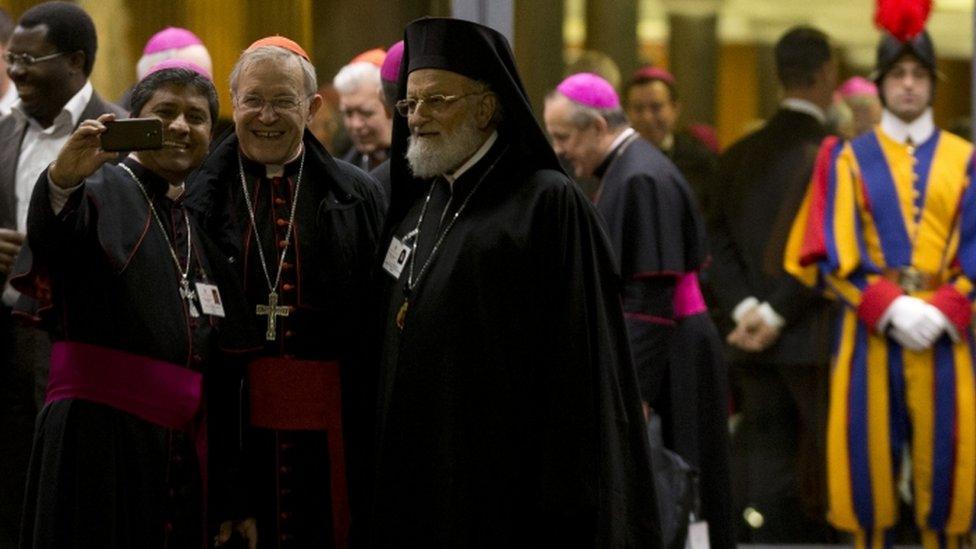
These three bishops took a selfie together - but divisions emerged at the meeting
The approved text calls for a case-by-case approach.
It also reiterates church teaching that homosexuals should not be discriminated against but said there were "absolutely no grounds" for gay marriage.
In his summary of the three-week gathering, Pope Francis said he wanted it to be about "listening to and making heard the voices of the families".
But he said the synod had "laid bare the closed hearts which frequently hide even behind the Church's teachings or good intentions", remarks seen as an attack on conservatives.

Analysis: Caroline Wyatt, BBC Religious Affairs Correspondent, Rome
The language of compromise is apparent throughout the final document. But what the Pope does with it - and how he takes it forward - is not yet clear. Pope Francis himself used his end of Synod speech as an opportunity to criticize "blinkered viewpoints".
What is obvious is that he wants a Church that is more merciful and less judgemental of those who stray from the path of righteousness: less finger-wagging, more hand-holding.
But in opening up so clearly the many very different views within this Synod, the Pope has been accused by some of sowing confusion, and quite possibly paving the way to real divisions within the Church in the future.
For some, the strength of the Catholic Church is in its unity of doctrine across the globe.
But for others, the process has been a welcome chance for church leaders to show that they can accompany families with greater understanding of the difficulties of living out their faith in the complex world of the 21st century.

He also acknowledged differences within the church, saying "what seems normal for a bishop on one continent is considered strange and almost scandalous for a bishop from another".
The text approved at the synod is only for guidance and Pope Francis must decide whether to advance it.
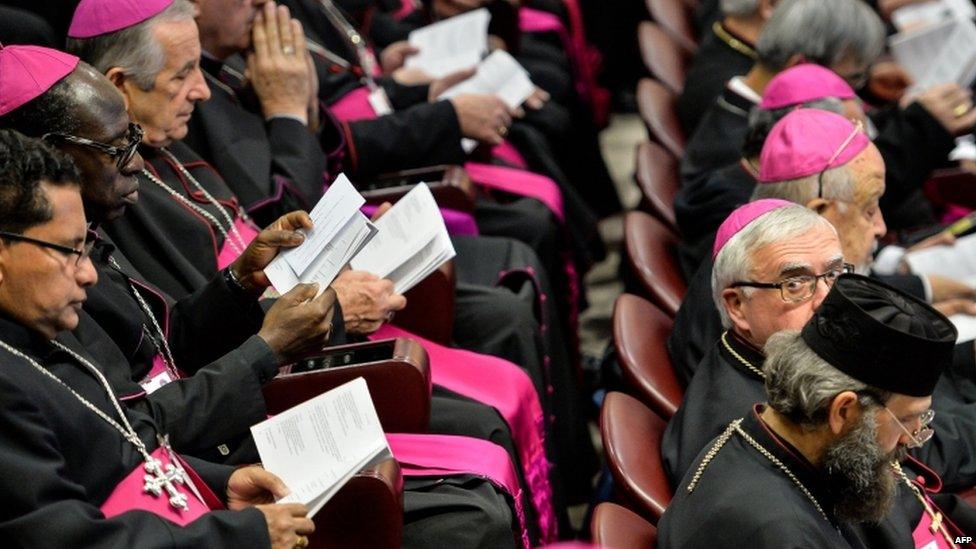
94 articles were approved by bishops
The opening of the synod was overshadowed by a row over a priest who announced he was in a gay relationship. He was later fired from his role at the Vatican.
The Vatican denied an Italian media report during the meeting that Pope Francis had a brain tumour, calling it "seriously irresponsible".
- Published15 October 2015
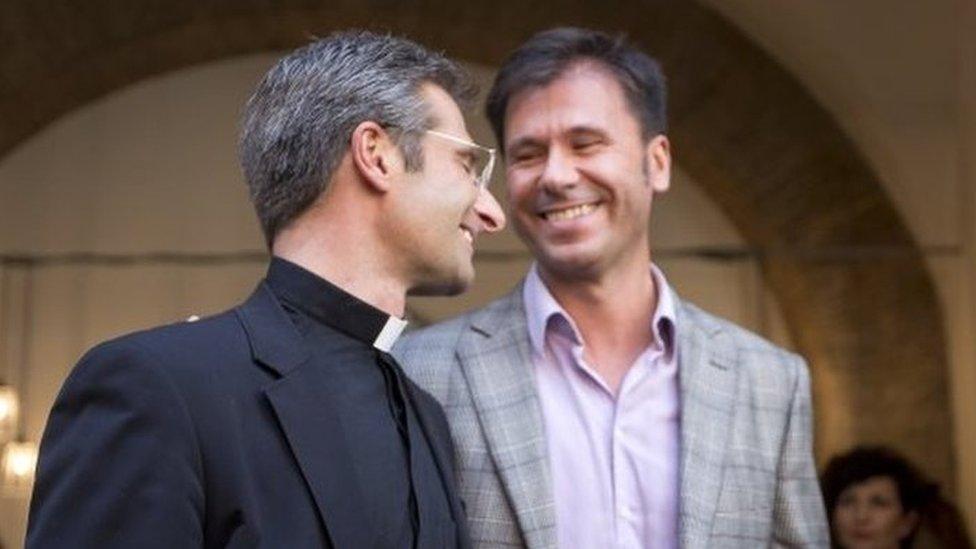
- Published4 October 2015
